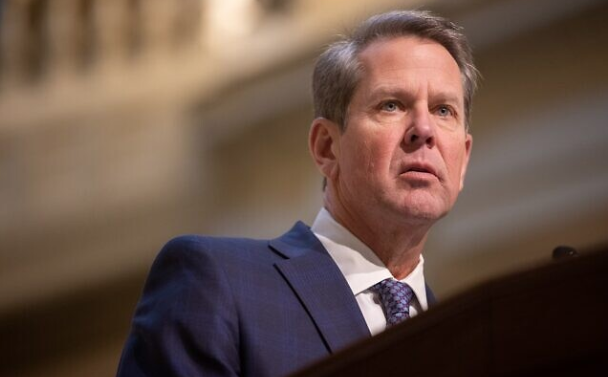Gov. Brian Kemp recently imposed the lifting of all COVID-19 restrictions in Georgia by April 8 including the requirement of wearing masks and practicing social distancing.
Kemp signed three executive orders concerning the COVID-19 restrictions on March 12. The first executive order extended Georgia’s Public Health State of Emergency through April 30. The second executive order extended the current COVID-19 guidance through April 7 which allowed state agency employees to get a COVID-19 vaccine without the use of sick or annual leave. The third executive order went into effect on April 8 and it eliminated the ban and shelter in place requirements. It also eliminated the ability of law enforcement to close an organization for failure to comply with the executive order provision.
According to the Center for Disease Control and Prevention (CDC) less than half of the Georgia population is fully vaccinated. As of April 19 only 32% of Georgia’s population has received at least one dosage of the COVID-19 vaccine and only 18% are fully vaccinated.
Medical experts say that lifting all COVID-19 restrictions without the majority of Georgia’s population being vaccinated will cause the states’ cases to rise.
“My guess is that we will see some increase in cases,” said the Medical Director of Health Services, Eric Heine. “The cases in Georgia have decreased from the extreme highs of January but have plateaued over the last month so it would be logical to see an increase in cases.”
Medical experts also believe the best chance of eliminating the rapid spread of COVID-19 is for everyone to receive the vaccine.
“At this stage in the game, in my opinion, the vaccine is our best chance to suppress the pandemic,” said Heine. “However, until the FDA removes the Emergency Use Authorization label to the vaccines, I doubt that the vaccine can be made a requirement.”
However, it was revealed that residents should not fully rely on the vaccine and should continue to wear masks and practice social distancing regardless of the restrictions being lifted.
“It is a bit premature to fully rely on the vaccine until we have more data to analyze,” said Heine. “The numbers for the COVID-19 vaccines look very good so far, but it may turn out that due to the variants that have developed SARS-CoV-2 may be like the flu virus.
“We might have to continue to mutate, so we might need a booster dose year to stay protected,” continued Heine. “So far now I would recommend that if you are around unvaccinated people that you keep wearing masks and distancing.”
Gov. Brian Kemp signed the executive orders to help the state return to normal. However, experts say that instead of being worried about normality we should worry about the health of the residents.
“There is a balancing act that must be done to determine best mitigation efforts,” said Heine. “Based on the number of cases and areas of surges in relation to the negative consequences to society by the restrictive measures, it is reasonable to maintain requirements and restrictions in place to minimize the spread of the virus. I would be wary of conveying the message that everything is fine, and we can return to normal because we are not there yet.”
You may also like
-
UWG’s Ingram Library Hosts Pop-Up Study Spot to Help Students Prepare for Finals Week
-
UWG Offers Mental Health Support And Academic Services To Maintain Student Success During Finals Week
-
UWG Alumnus Shares His Experience Exploring the Underground Flood Channels of Las Vegas
-
Georgia Students Simulate the Struggles of Dementia
-
UWG PR Students Score a Georgia Power Tour at Atlanta Corporate Office
